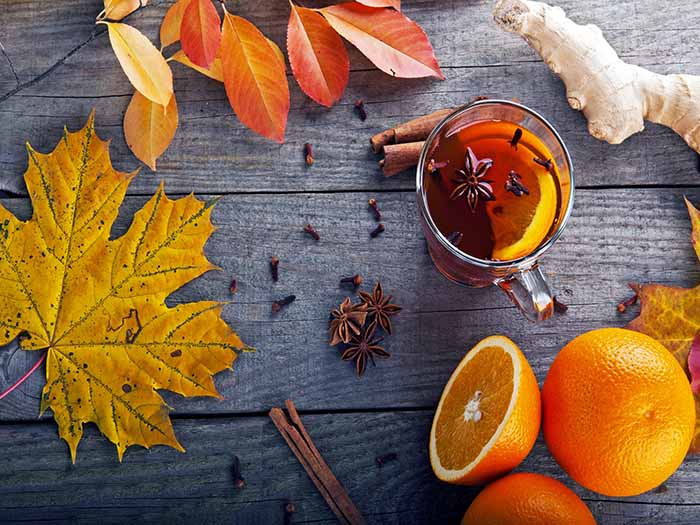Drinking clove tea is an invigorating and delicious way to boost your nutrient intake and naturally treat certain health conditions.
What is Clove Tea?
Clove tea is an herbal tea brewed from the dried and ground flower buds of the Syzygium aromaticum tree. These dried cloves have a spicy, pungent flavor that makes them very popular as an ingredient in desserts and baked goods, as well as in savory meals. The cloves themselves are a rich source of eugenol, a powerful antioxidant, as well as other nutrients and vitamins, such as vitamin C, flavonoids, fiber, calcium, and certain omega-3 fatty acids. These cloves have been brewed into a tea for centuries and are used in many medical traditions. [1]
Clove Tea Benefits
The primary benefits of clove tea may include its ability to possibly improve digestion, relieve constipation, lower fevers, clear up skin infections, and speed weight loss efforts among others.
May Help with Sinus Infections
Studies have found that this tea and its active ingredients may help to relieve inflammation in the sinuses, while also addressing the underlying infection causing the symptoms. [2]

Clove tea is high in antioxidants. Photo Credit: Shutterstock
Digestion
When you drink this tea, it may increase the production of both saliva and gastric juices, both of which are necessary for efficient digestion. This may speed peristaltic motion and might lower your risk of experiencing constipation or inflammation in the gut. [3]
Fever
The possible natural anti-inflammatory properties of this tea make it an ideal way to break fevers. For generations, it has been administered to kick the immune system into high gear and snap a fever. [4]
May Reduce Intestinal Parasites
This tea may have antibacterial, anti-fungal, and anti-parasitic abilities, so in those parts of the world where intestinal parasites are still a major problem, this tea remains very popular. [5]
Arthritis
The anti-inflammatory and analgesic abilities of eugenol are well researched, and it has been tied to less discomfort and pain in the joints for those suffering from rheumatoid arthritis. This might be effective with both oral or topical applications of this tea. [6]
Weight Loss
Any tea that can stimulate the metabolism and deliver key nutrients can aid in weight loss, and clove tea is no exception.
Skin Health
With the possible powerful antioxidants in this tea, oxidative stress can be slowed down, along with the appearance of wrinkles, age spots, and blemishes. [7]
How to Make Clove Tea?
Making clove tea is quick and simple, as cloves are commonly found in most spice racks, and the health benefits are undeniable!

Clove Tea Recipe
Ingredients
- 3 cups water filtered
- 1/2 tbsp cloves
- 1 cinnamon stick optional
- 1/2 inch ginger optional
- honey optional
- orange slices optional
Instructions
- Bring the water to boil and remove from heat.
- Crush 1/2 tablespoon of dried cloves with the mortar pestle, but do not pulverize them into powder. You can also grind cloves and keep it stored in an airtight spice jar.
- Add the clove powder to the water. If you are using orange slices, ginger, and cinnamon, you can add it now. Allow the mixture to steep for 20-30 minutes.
- Strain the mixture and warm it. Enjoy this spicy, herbal tea! You can also add honey to sweeten it.

Clove Tea Side Effects
There are some side effects of drinking clove tea, particularly in excessive quantities, such as
- Possible Pregnancy complications
- Gastrointestinal distress
- Muscle pain
- Weakness
- Signs of being ill, such as chills, fever, coughing
- Difficult breathing.
There are a good amount of people who are allergic to cloves, and while most side effects occur when you eat cloves directly, this tea can still be dangerous for those who have a sensitive system. Speak to your doctor before adding this tea to your health regimen.
